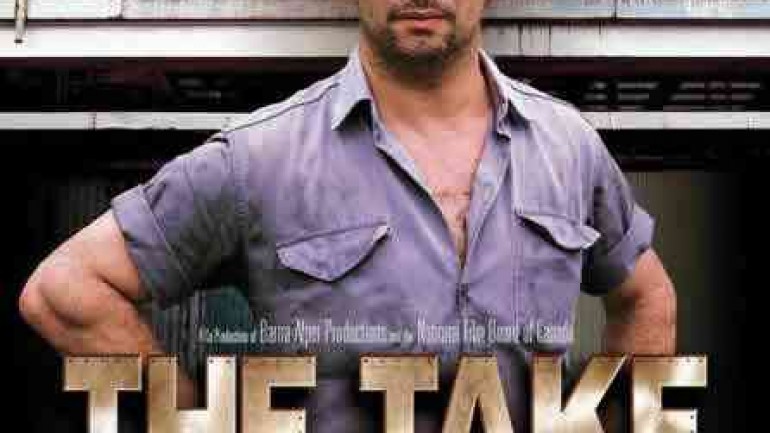We heard rumors of a new kind of economy emerging in Argentina. With hundreds of factories closing, waves of workers were locking themselves inside and running the workplaces on their own, with no bosses. Where we come from, a closed factory is just an inevitable effect of a model, the end of a story. In Argentina today, it’s just the beginning. In suburban Buenos Aires, thirty unemployed auto-parts workers walk into their idle factory, roll out sleeping mats and refuse to leave.
All they want is to re-start the silent machines. But this simple act – The Take – has the power to turn the globalization debate on its head. In the wake of Argentina’s dramatic economic collapse in 2001, Latin America’s most prosperous middle class finds itself in a ghost town of abandoned factories and mass unemployment. The Forja auto plant lies dormant until its former employees take action.
They’re part of a daring new movement of workers who are occupying bankrupt businesses and creating jobs in the ruins of the failed system. But Freddy, the president of the new worker’s co-operative, and Lalo, the political powerhouse from the Movement of Recovered Companies, know that their success is far from secure. Like every workplace occupation, they have to run the gauntlet of courts, cops and politicians who can either give their project legal protection or violently evict them from the factory.
The story of the workers’ struggle is set against the dramatic backdrop of a crucial presidential election in Argentina, in which the architect of the economic collapse, Carlos Menem, is the front-runner. His cronies, the former owners, are circling: if he wins, they’ll take back the companies that the movement has worked so hard to revive. Armed only with slingshots and an abiding faith in shop-floor democracy, the workers face off against the bosses, bankers and a whole system that sees their beloved factories as nothing more than scrap metal for sale.
With The Take, director Avi Lewis, one of Canada’s most outspoken journalists, and writer Naomi Klein, author of the international bestseller No Logo, champion a radical economic manifesto for the 21st century. But what shines through in the film is the simple drama of workers’ lives and their struggle: the demand for dignity and the searing injustice of dignity denied.




So this socialist doc blames capitalism when the reality was government was at fault.
Typical.
You know capitalism has failed when workers have to break into their closed factory to start it up and go to work.
We’re really flogging a dead horse with this system, when will we ever learn.
A well put together documentary. An inspiring tale of determination, team-work, motivation and passion. 10/10
I thought this was an excellent film, how inspiring.
worth to see it !!!, I laughed and got emotional with it, a total tribute for the workers and to its values